Clinical Domains
The 5th International Consensus (Berlin 2016) states that a suspected diagnosis of SRC can include one or more of the following clinical domains:
|
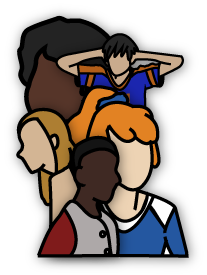 |
Clinical Domains |
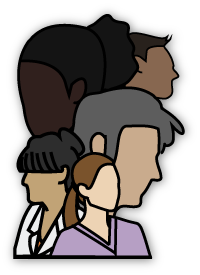 |
Select each tab on the left for more information. | ||
Symptom Clusters
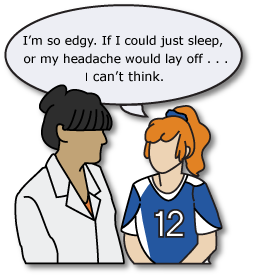 |
A young person probably won't tell you, "I've had a concussion!" But the symptoms he or she reports just might. When a youth has suffered a concussion, he or she can experience clusters of symptoms from any or all of the categories identified in the Berlin statement. Your patient may report symptoms from any of these symptom clusters:
|
Physical Signs
Physical signs of a concussion may or may not be present. Whether a youth mentions them or not, you or others may observe signs such as:
|
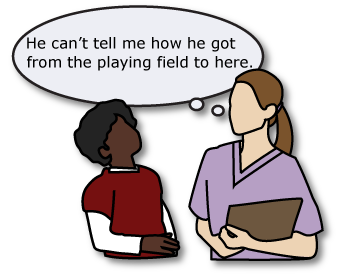 |
Behavior Changes
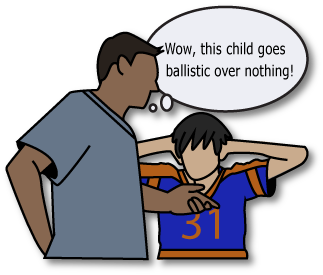 |
Even in a young person you have not met before, you may observe behavioral signs of concussion, such as extreme irritability. Questioning the youth and the family or coaching staff will help confirm a change in temperament with a sudden onset, which may signal a concussion.
|
Cognitive Impairment
It’s important to watch for cognitive signs of a concussion, especially since the young person may be unaware he or she is having trouble. For example, as you spend time with the young person, you may notice slowed reaction time or difficulty concentrating. These problems may signal cognitive impairment resulting from a concussion.
|
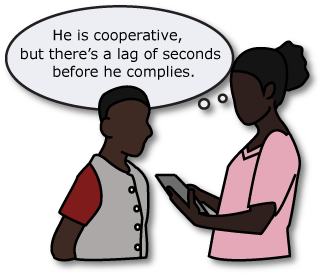 |
Sleep Disturbance
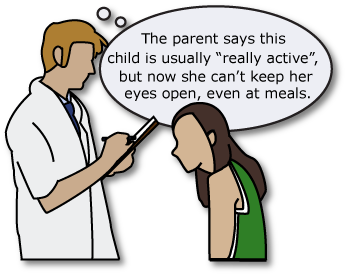 |
Sleep-related signs of a concussion, such as drowsiness, may be observable. Any disruption of the normal sleep pattern can indicate a concussion has occurred.
|
